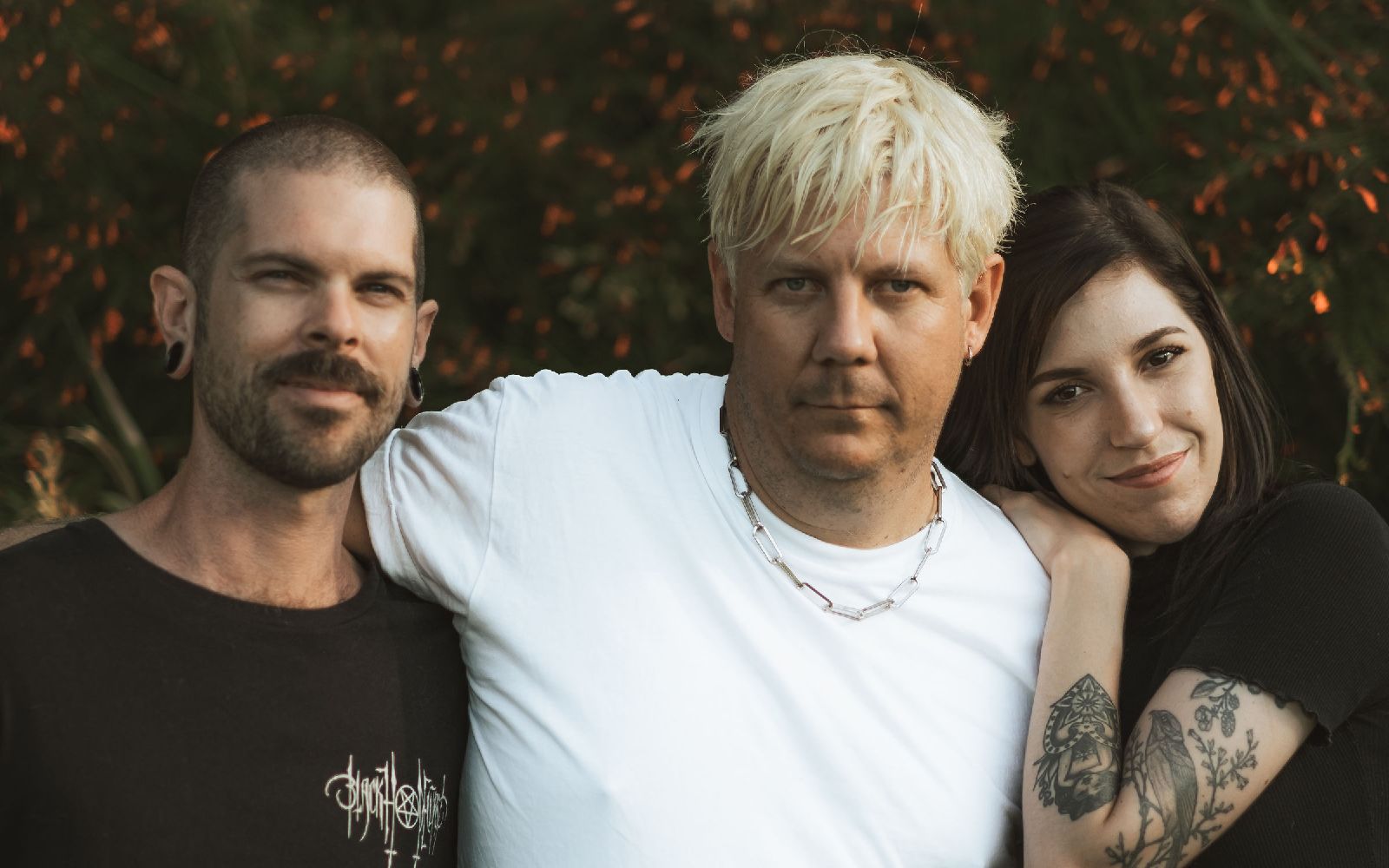Having cut their teeth as a live band, Haters travelled to Canada to work with producer Scott Middleton.
Despite their band name, Haters are a calm, professional and lovely group of people. Their debut record Non-Violent (much more fitting to the smiling demeanour of the three-piece) is out now, having been produced by Scott Middleton, whose production credits have grown after he departed Cancer Bats to focus on producing records.
Scott joins us from Canada via Zoom, and we all share a laugh as the engineer and producer of the record, arguably the most experienced and professional of the lot of us, forgets to unmute his mic.
“A classic mistake!” he laughs.
Haters are a three-piece band, with Jai on guitar and vocals, Jimmy on drums and Kaito on bass. Less members usually allow for a more streamlined workflow, fewer chefs in the kitchen per se, but as Jai explains, they’re keen for everyone’s input.
Read all the latest features, columns and more here.
“I usually come in with a bit of an idea,” he begins. “But as the band has evolved, the ideas have been less and less because it’s really fun to do it together.”
“But working with Scott, we wrote about thirty songs— or thirty ideas. We tried to have them written less, if that makes sense, because we learnt so much from hanging out with Scott, so I guess that’s it. I write all the lyrics and we go for it.”
Bringing a producer into the creative process can put a lot of responsibility on them, but the band and Scott has already worked on a handful of songs together, so the working relationship was there.
“For me, a strong focal point is always the lyric.” explains Scott. “I don’t love listening to an instrumental without vocals, because it doesn’t give me proper context.”
“I’ll ask Jai a lot of questions revolving around the lyrics, and he’s never short of explaining that, and so that’s always a driver. I want to understand the emotional intention of the song so that we can focus on the arrangement and the instrumentation matching that same energy.”
Scott continues, explaining that he and the band worked through demo sessions via Zoom, the band in a jam space and Scott at his studio, providing feedback to the band, albeit with the latency of streaming across to the other side of the planet.
Scott loves that Haters left room for magic and collaboration to happen, citing Kaito coming up with call and response parts on “wander//wonder”, totally transforming the song.
The entire process was about collaboration, and they were keen to create unique and distinct songs, having explored every avenue to ensure things were the best they could be.
“I remember in “Jimmy Says”—” begins Jai. “A big part of working with Scott was surrendering to being open, and I remember “Jimmy Says” had three choruses, and Scott said ‘Yeah let’s just cut all those choruses and make it three verses and an outro.”
Had Jai’s hard work on the lyrics all been in vain? He slept on the idea, allowing it to happen, and woke up the next morning for a fresh listen and couldn’t believe they’d ever considered doing the song any other way. Scott isn’t in the business of hacking songs apart, instead he’s trying to find the crux of a song and highlight it, the profound lyricism in the verses of “Jimmy Says” being a perfect example.
Bringing in a producer was a logical choice for Haters, not because they need the help, but they want to become better songwriters themselves.
“It’s tricky, writing songs to me is really quite a personal experience,” explains Jai. “You really have to gel with someone to have them incorporated into that part. It’s like getting band members, it’s like getting married or something!” he laughs.
Back to the role of a producer, Jai says that it’s about getting someone to push you, citing Scott’s ability to pull the best performances out of the band, despite it sometimes taking hours. Live, they now play those parts they struggled with perfectly.
“It’s crazy to think such a simple drum part could’ve worked, but I didn’t think of it.” Jimmy adds. “But with fresh ears, I’m like ‘Why couldn’t I have just done that?’”
We pivot here to discuss the live show vs. the recordings, Haters making a special effort to ensure the songs don’t fall apart live, while still making the record as exciting as it can be. Bass player Kaito would practice at home flashing lights to replicate a stage, calling it her “concert simulator” and Scott used this idea while recording to ensure the excitement and energy of Hater’s live show was there.
Having to travel internationally, Haters used a lot of Scott’s equipment, rather than shipping their own equipment over at great expense. One piece that made the record though, is a Mesa Lone Star Special that Scott bought specifically for the record. Jai uses this amp at home, and Scott— eager for an excuse to buy another amp, found one locally and snapped it up, using it across multiple songs on Non-Violent.
It’s also an excuse for Haters to explore a heap of new gear, Jimmy having the chance to dry different drums and really hone in on his snare choice, Jai using a fancy Nik Huber and for one song used an old Yamaha nylon-string tuned to C that someone had left in Scott’s kitchen.
Inspired, Kaito grabbed another guitar, tuned it down, and a song was born from that fleeting moment, strumming on an old de-tuned guitar.
The name of the game is leaving room for the songs to evolve, as too rigid a workflow wouldn’t allow for these moments to happen. Haters are weary of overwriting songs, instead leaving room for the magic between them.
Non-Violent is out now, with Haters travelling the world to play it for you, with a few new songwriting tricks up their sleeves, their live show turning Kaito’s concert simulation into the real thing. You can also keep up with Scott Middleton here.

